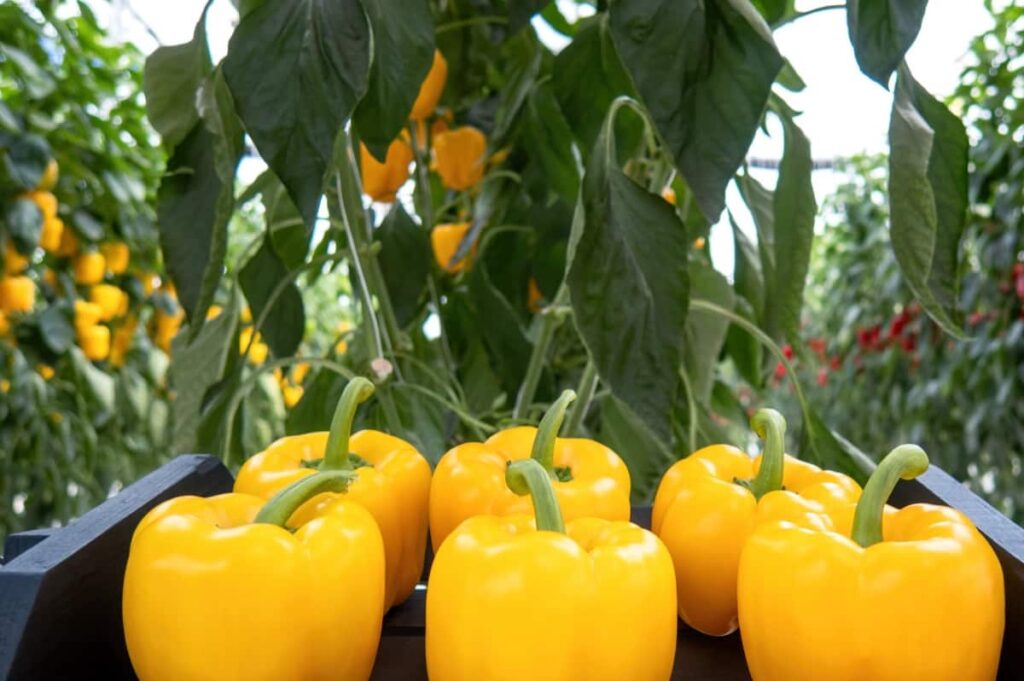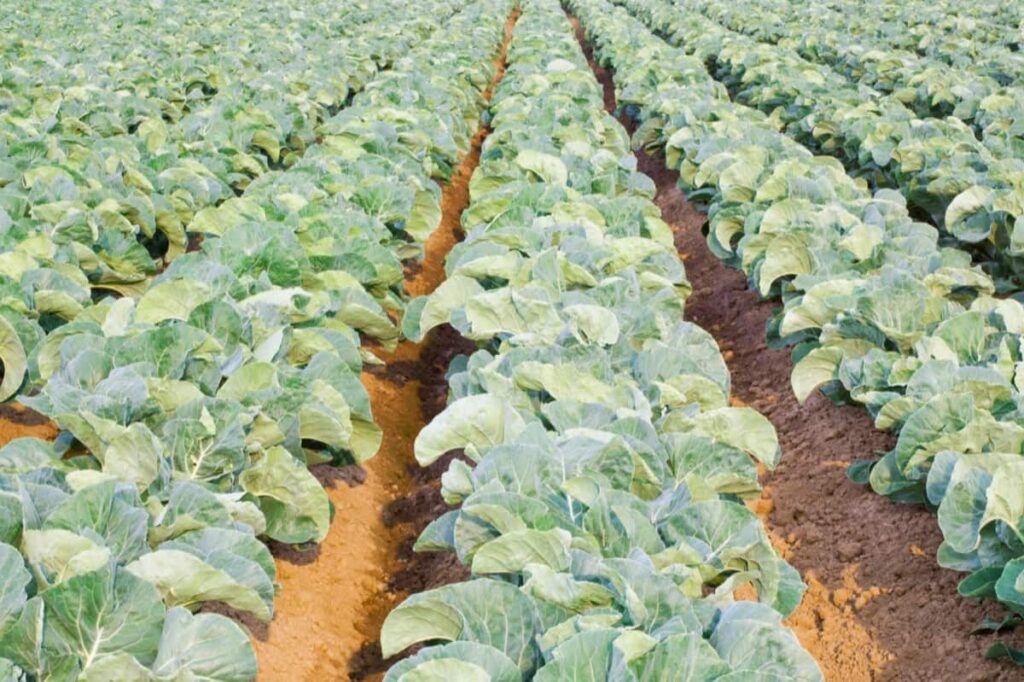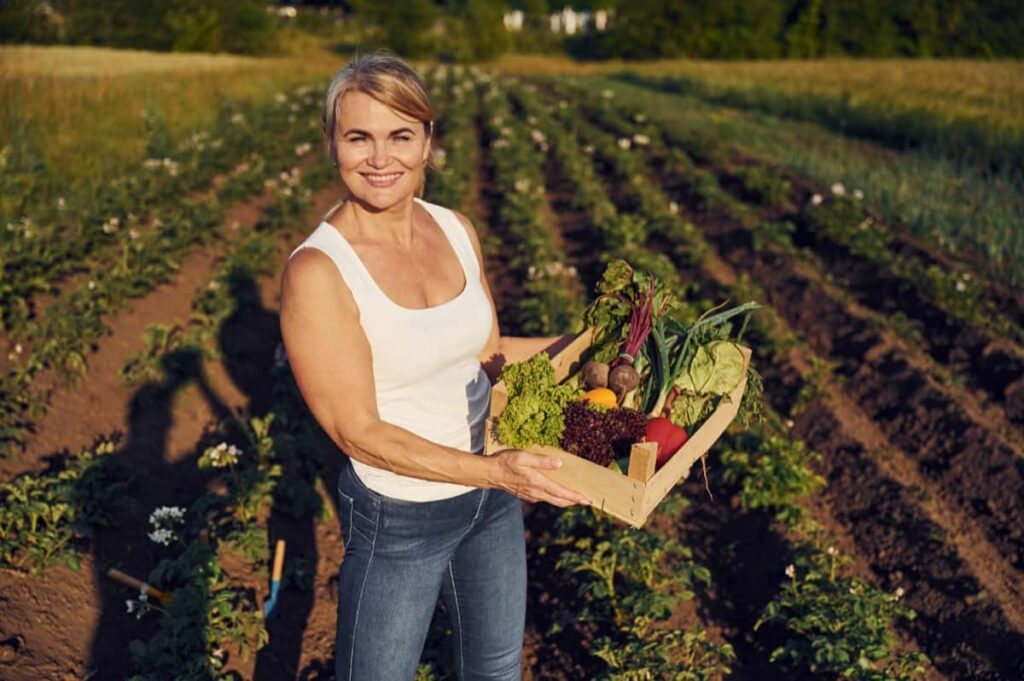Organic vegetable cultivation is the process of growing vegetables using organic farming methods. This means that no synthetic chemical fertilizers, pesticides, or genetically modified organisms (GMOs) are used in the process. Instead, organic farmers rely on natural methods such as crop rotation, companion planting, and organic fertilizers and pesticides to maintain soil health and control pests. Let’s check out the benefits of incorporating organic practices in vegetable cultivation below.

Organic vegetable cultivation involves using natural, non-toxic methods to control pests, such as beneficial companion planting, insects, and crop rotation to disrupt the life cycle of pests. These methods are not only safe for the environment but also help to improve soil health and biodiversity.
Organic farmers also use composting, vermiculture, and green manures to replenish the soil with organic matter, which helps to improve soil fertility, water-holding capacity, and structure. Organic vegetable cultivation requires more time and labor than conventional farming, but it is considered more sustainable and environmentally friendly. Many people also believe that organic vegetables have a better taste and nutrition than conventionally grown vegetables.
Organic vegetable farming is certified by various organizations worldwide to ensure that the farming practices are truly organic and in line with the guidelines provided by the certifying body. Organic practices in vegetable cultivation include using methods and materials derived from natural sources that do not rely on synthetic inputs such as pesticides, herbicides, and fertilizers. Some common organic practices include:
- Cover Cropping: using a variety of plants to cover and enrich the soil, improve soil structure and fertility, and control weeds.
- Composting: using organic matter, such as leaves, grass clippings, and food scraps, to create a nutrient-rich soil amendment.
- Crop rotation: Growing different crops in an area in a specific sequence to prevent the buildup of pests and diseases and to improve soil fertility.
- Companion planting: planting specific crops together to discourage pests and improve soil health and crop yields.
- Natural pest control: using natural predators, such as ladybugs and lacewings, to control pests, rather than synthetic pesticides.
- Hand weeding: removing weeds manually to reduce the need for synthetic herbicides.
- Mulching: using organic materials, such as straw or leaves, to suppress weeds and retain moisture in the soil.
- Organic fertilizers: use natural sources of nutrients, such as bone meal, fish emulsion, and compost, to give plants nutrients for growth.
In case you missed it: Growing Potatoes Organically in Telangana: Step-by-Step Cultivation and Production

Organic vegetable cultivation is a holistic approach that focuses on the health of the soil, plants, and surrounding ecosystem rather than relying solely on synthetic inputs. Organic fertilizer has several advantages over synthetic fertilizers, including:
- Improving soil structure and increasing the soil’s ability to hold onto water and nutrients.
- Providing an environment where microbes can thrive due to the presence of organic matter.
- Being more sustainable and environmentally friendly, reducing the risk of fertilizer run-off and increasing species biodiversity.
- Reducing the need for pesticides and overall fertilizer requirements, potentially resulting in cost savings.
- Avoiding plant damage caused by synthetic fertilizers.
The benefits of incorporating organic practices in vegetable cultivation
Improved soil health
Incorporating organic practices in vegetable cultivation can improve the soil’s overall health. Organic farming uses natural methods for maintaining soil fertility, such as crop rotation, composting, and natural pest control. These practices can improve the structure and fertility of the soil, leading to better water retention, increased nutrient uptake by plants, and higher yields.
Additionally, organic farming helps to build healthy soil by increasing the population of beneficial microorganisms and earthworms, which help to break down the organic matter and improve soil structure. Overall, improving soil health through organic practices can lead to more resilient and productive vegetable gardens and farms.
Reduced pesticide use
One of the key benefits of incorporating organic practices in vegetable cultivation is the reduction in synthetic pesticides. Organic farmers rely on natural methods to control pests and diseases, such as companion planting, crop rotation, and beneficial insects, rather than synthetic chemicals.
This reduces the risk of harmful chemicals entering the food supply and helps promote a healthy farm ecosystem. By reducing synthetic pesticides, organic farming can help protect the health of farmers, farm workers, and the surrounding community. Additionally, by reducing the amount of synthetic pesticides used in agriculture, organic farming can also help to protect the environment and natural resources.
In case you missed it: How to Grow Ginger Organically in Gujarat: Cultivation Practices and Production Management

Enhanced nutritional value of crops
Organic farming can result in higher nutrients in fruits and vegetables, such as vitamin C, compared to conventionally grown crops. Research also suggests that organically grown food may contain higher antioxidants and other health-promoting compounds, which can protect against chronic diseases.
Organic farming also avoids using synthetic fertilizers and genetically modified organisms (GMOs) which can affect the nutritional value of the crops. Overall, incorporating organic practices in vegetable cultivation can lead to healthier, safer consumer products and more nutritious food options.
Impact of organic farming on biodiversity
Organic farming has positively impacted biodiversity compared to conventional farming practices. Organic farming relies on natural methods for pest control and soil fertility, which can promote a healthy and diverse ecosystem on the farm. Organic farms often have higher populations of beneficial birds, insects, and other wildlife, which can help to control pests and improve overall farm productivity. Organic farming promotes crop rotation and diversity, which can help conserve genetic diversity and benefit soil health.
Organic farms also avoid using synthetic fertilizers, pesticides, and genetically modified organisms (GMOs), which can negatively impact biodiversity. Additionally, organic farming can provide wildlife habitats, such as wildflowers, hedgerows, and wetlands, supporting many species. These habitats can also help mitigate climate change’s effects by storing carbon and reducing erosion. In summary, organic farming can help conserve biodiversity by promoting a healthy and diverse ecosystem on the farm, providing habitats for wildlife, and preserving genetic diversity.
Increased market value for organic products
Incorporating organic practices in vegetable cultivation can increase the market value of organic products. Organic products are often viewed as higher quality and carrying health benefits. As a result, they are often sold at a premium price compared to conventionally grown products. Consumers pay more for organic products because they believe they are more nutritious, taste better, and are more environmentally friendly and sustainable.
Additionally, the demand for organic products has been increasing globally, providing organic farmers with more market opportunities and better prices. This increase in demand for organic products has also led to the development of various organic certification schemes and labeling, which helps consumers to identify and trust organic products.
In case you missed it: Cabbage Farming Business Plan: How to Grow from Seed to Harvest

Organic farming also benefits farmers in terms of long-term sustainability, as it reduces the dependence on synthetic inputs and increases the farm’s resilience to climate change. This can lead to more stable income for farmers and increased profitability. Overall, incorporating organic practices in vegetable cultivation can increase market value for organic products, providing farmers with more income and financial stability and consumers with better-quality and healthier food options.
Higher yields and increased farm profitability
Incorporating organic practices in vegetable cultivation can lead to higher yields and increased farm profitability. While it is commonly believed that organic farming yields lower crop yields, studies have shown that organic farming can be just as productive or even more productive than conventional farming, especially in the long run. Natural soil fertility and pest control methods, such as crop rotation and companion planting, can improve soil health and increase plant nutrient uptake, leading to higher yields.
Additionally, organic farming can lead to increased farm profitability by reducing the cost of inputs, such as synthetic fertilizers and pesticides, which can be a significant expense for conventional farmers. Organic farming also allows farmers to charge a premium price for their products, which can lead to increased revenue.
Organic farming also benefits farmers in terms of long-term sustainability, as it reduces the dependence on synthetic inputs and increases the farm’s resilience to climate change. This can lead to more stable income for farmers and increased profitability. Overall, incorporating organic practices in vegetable cultivation can lead to higher yields and increased farm profitability and provide farmers with more income and financial stability.
Plant damage threat avoided
Organic fertilizers are made from natural such as plant and animal waste, and are processed in a way that mimics natural nutrient cycling. They are typically lower in concentrated nutrients than synthetic fertilizers, reducing the risk of plant damage caused by over-fertilization. Organic fertilizers also contain other beneficial microorganisms and organic matter that help improve soil health and structure, which can help plants better absorb and utilize the nutrients.
Synthetic fertilizers are made from chemical compounds that can be highly concentrated and can cause damage to plants if used in excess. They can burn or damage the leaves and roots of plants and disrupt the natural balance of nutrients in the soil. Additionally, synthetic fertilizers lack microorganisms, making the soil more susceptible to erosion and compaction, leading to poor plant growth and reduced yields.
In summary, organic fertilizers are less likely to cause plant damage than synthetic fertilizers. They are made from natural materials and are lower in concentrated nutrients. They contain microorganisms that help to improve soil health and structure, which helps plants to absorb better and utilize nutrients.
Healthier and safer food for consumers
Organic farming can enhance food safety in several ways. One of the key reasons is the lower application of nitrogen fertilizers, which can help to reduce nitrate concentrations in fruits and vegetables. Nitrates can harm human health if consumed in large quantities, and organic farming can help minimize this risk by using natural methods to maintain soil fertility.
In case you missed it: Pomegranate Fruit Fly: Symptoms, Treatment, Effective Management, Chemical, and Organic Control

Another essential aspect of organic farming is the avoidance of pesticide use. Organic farmers rely on natural methods for pest control, such as companion planting and crop rotation which can help to reduce or eliminate the need for synthetic pesticides. This can result in virtually no pesticide residues in organic produce, making it safer for consumers to eat.
In case you missed it:
Additionally, organic farming avoids using chemical fertilizers, which can help ensure low concentrations of chemical residues in fruits and vegetables. Natural fertilizers, such as compost, can provide plants with the necessary nutrients without chemical residues. Overall, organic farming can help enhance food safety by reducing the risk of harmful chemical residues in fruits and vegetables, making them safer for consumers.
Need for organic farming
- The overuse of chemical fertilizers reduces soil fertility.
- Excessive chemical use has resulted in soil, water, and air pollution.
- To preserve the ecosystem.
- To promote long-term development.
- Increased demand for organic products as a result of food safety.
Advantages of organic cultivation
- Economical: In organic farming, no expensive fertilizers, pesticides, or HYV seeds are required for crop planting. As a result, there is no additional cost.
- Good return on investment: A farmer can make a good return using cheaper and local inputs.
- High demand: Organic products are in high demand in India and worldwide, generating additional revenue through export.
- Benefits: Organic products are more nutritional, tasty, and healthy when compared to chemical and fertilizer-based products.
- Environmentally friendly: Organic farming is free of chemicals and fertilizers, so it has no negative impact on the environment.
Disadvantages of organic cultivation
- Cost: Organic farming practices tend to be more labor-intensive and require more time and resources, which can increase the cost of production. This can make it more challenging for farmers to compete with conventional farmers with access to cheaper inputs and technologies.
- Access to inputs: Organic farmers may need more access to specific inputs, such as organic seed, fertilizer, and pest control products, which can limit their options and make it more difficult to manage pests and diseases.
- Weather Dependent: Organic farming heavily depends on weather conditions, and extreme weather conditions can significantly impact production.
- Marketing and Distribution: Organic farmers may need more infrastructure and market access to market and distribute their products.
In case you missed it: How to Maximize Profit in Greenhouse Farming: Take an Advantage of Future Farming

In conclusion, Organic farming is considered more sustainable and environmentally friendly, but it has challenges and limitations. Organic farmers may need help with their products’ production, shelf life, marketing, and distribution, making it more difficult to compete with conventional farmers. Despite these challenges, many farmers choose to adopt organic farming practices because of their benefits to the environment, human health, and rural communities.
Conclusion
Organic practices in vegetable cultivation can benefit the environment and consumers’ health. By using natural methods to control pests and fertilize the soil, farmers can reduce their reliance on synthetic chemicals, which can contribute to soil and water pollution. Additionally, organic produce is often higher in nutrients and lower in pesticide residues, making it a healthier option for consumers. By switching to organic practices, farmers can not only improve the quality of their products but also help protect the environment and promote sustainable agriculture.
- Management Pests and Diseases in Your Cotton Field
- Sheep Farming Business Plan for Beginners
- Aquaponic Farming at Home: A Step-By-Step Guide
- Profitable Village Farming Business Ideas in 2024
- High-Yield Aquaculture: Fast-Growing Fish for Farming
- Effective Fish Pond Construction Techniques for Beginners
- Irrigation and Water Management in Pineapple Farming
- Blossom to Harvest: Mastering Flowering and Pollination in Papaya Farming
- Pig Fattening Essentials: From Selection to Sale for Beginners
- Raising Wagyu Cattle: A Complete Guide for Premium Beef Production
- Soil Types and Their Water Holding Capacity
- Optimizing Irrigation Schedules for Coconut Groves for Enhanced Yield
- Espresso Your Garden: Coffee Grounds for Healthier Acid-Loving Plants
- The Best Soil Mix for Snake Plants: How to Mix Your Own Snake Plant Soil
- Green Thumb Success: Expert Tips for Cultivating Greenhouse Beans All Year Round
- Bloom All Year Round: The Ultimate Guide to Indoor Hyacinth Care
- Eco-Friendly Gardening: How to Make Liquid Fertilizer from Kitchen Waste
- Ultimate Guide to Grow Anise in Pots: Explore Seed Propagation to Harvesting
- Guide to Raising Chester White Pigs: Discover Breed Facts to Growth Management
- Mastering the Elegance: The Ultimate Guide to Weeping Cherry Tree Care, Planting, and Maintenance
- Ultimate Guide to Planting Garlic in Grow Bags: Growing Strategies for Beginners
- How to Fix Spider Plant Leaf-Related Problems: Natural and Organic Remedies
- 10 Reasons Why Your Tulsi Plant is Shedding Leaves: Home Remedies and Solutions
- Optimizing Growth and Yield: The Advantages of Palm Bunch Ash Fertilizer
- Utilizing Neem Oil Extract as a Natural Pesticide for Hydrangea
- From Soil to Harvest: Various Ways in Which Farmers Can Use AI Tools
- Steps to Encourage and Induce Citrus Flowers: A Comprehensive Guide
- How to Fix Snake Plant Leaf-Related Issues: Natural and Organic Remedies
- Transform Your Garden into a Fragrant Oasis with Raat Ki Rani (Night Blooming Jasmine)
- Discover the Ideal Chicken Breeds for Philippine Farms
- How to Create a Poultry Egg Farm Business Plan for Profits
- Grow Lemon Cucumbers Like a Pro: Insider Techniques for Bountiful Yields
- Ultimate Guide to Caring for Your Pink Princess Philodendron: Tips for Thriving Variegation
- Areca Nut Profit Per Acre: Calculating Yield and Cost of Cultivation
- How Kaveri Chicken is Becoming a More Profitable Breed in Indian Backyards
- Transform Your Barn: 9 Steps to Convert a Horse Stall into a Chicken Coop
